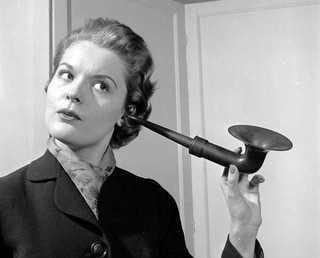The prevalence of news stories about Hurricane Sandy this week reminded me of a set of guidelines I composed for how to talk with older adults in a crisis.
(For general information on
how to cope in a crisis, see FEMA's page on the topic.)
Before getting to the specifics, it's important to avoid Elderspeak, a form of baby talk that people too often use to address older adults.
People are usually well meaning when they modify their speech this way, but the result too often is that the older adult feels patronized.
Read this post on
Elderspeak to learn more about its features, tone and harmful effects.
Nevertheless, healthy aging does often require conversationalists to make some adjustments. I suggest starting with a normal conversation features and then adjust as you receive input about possible limitations.
Don't start with the assumption that people have limits such as bad hearing and compromised cognition. If you guess wrong, you've already broken trust. The American Speech Language Association (ASHA) shares
these tips for communicating with older adults.
These additional guidelines were composed in 2010 for local police officers interviewing older adults after suffering from an accident or from a crime, but they might be helpful in other crisis settings. You can remember key points through the mnemonic
E.L.D.E.R.







































